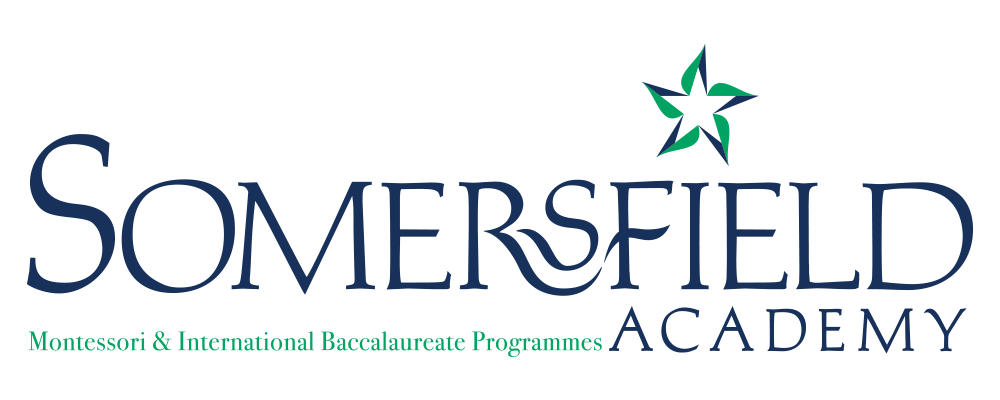'Hands-on Approach' of Retiring Principal of Somersfield Academy will be Missed
December 22, 2008 — Margaret Hallett became principal of Somersfield Academy ten years ago and is now retiring early from the school to seek fresh challenges. She talked to The Royal Gazette about her time at one of the Island's three Montessori facilities.
Every week morning Margaret Hallett stands at the door of Somersfield Academy and welcomes the youngsters entering the school for the day.
"It's not because I don't have anything else to do," the retiring Somersfield principal insists with a smile. "I greet the children every time. It keeps me very connected with the kids and the parents.
"I go home and I think about pretty much every teacher and every child every night who is having a difficult time and who is having a wonderful time."
Her self-confessed "hands-on approach" will undoubtedly be missed at the Montessori school when Mrs. Hallett passes the school keys to her successor Jim Christopher on January 2 and steps down as principal.
Last week, students held an emotional farewell assembly in her honour and Tom Vesey, chairman of the school's board of governors, told this newspaper she was "more responsible than anybody else" for turning Somersfieldfrom a "struggling little Montessori school into a fully-fledged thriving kind of place for kids of all ages".
Mr. Vesey added: "In some ways, she still runs the place like it was a small country house school. I think she personally knows every kid."
The number of children to get acquainted with has grown rapidly during Mrs. Hallett's tenure as headmaster. When she took over ten years ago, there were 125 children aged three to 11 at Somersfield, which was then still based in Warwick.
The school, which moved to Devonshire at the start of this decade and began a five-year development of the physical plant, now boasts 405 children aged three to 16, and 53 staff.
Mrs. Hallett admits Somersfield has "hugely expanded" since she took charge but explains:"It wasn't an incredibly conscious campaign. I think what our school did is we quietly went about doing a very good job. I think it spread largely by word of mouth.
"Our growth was really very organic. It was very carefully planned and we didn't do all our building right at once."
Originally from Canada, Mrs. Hallett came to the Island in 1980 with her Bermudian husband and did administrative work at the Bank of Bermuda and Bermuda Small Properties.
She developed an interest in Montessori education, inspired by her mother, a teacher. "My mother probably did raise me as a Montessori child," she says. "She hadn't taught it but she had embraced the approach and philosophy over many, many years."
The Montessori philosophy, named after Italian educator Dr. Maria Montessori, is often described as an alternative approach to learning.
There are thousands of Montessori schools around the world and it is especially popular in the US. Its aims include helping children develop creativity, problem solving, critical thinking and time-management skills, as well as the ability to make decisions for themselves.
It's a style of teaching that tends to eschew traditional school discipline measures but Mrs. Hallett insists:"It's not a free for all."
She explains: "The children are encouraged to be independent and use their choice within a Montessori classroom. That choice is within a structure and framework that's safe and progressive."
Trained on the Island by Montessori expert Sheila Fitzgerald, Somersfield's first principal, Mrs. Hallett completed a Master's degree in early childhood and elementary education from Wheelock College in Boston.
She has been with Somersfield since it opened in September 1991 – with less than 75 pupils – as Montessori International Academy, teaching at the same time as studying for her professional qualifications.
After seven years as a teacher, she was promoted to principal, at the age of 37. "The school had been through a series of heads in rather rapid succession and it wasn't probably the best time in the school's life," she recalls.
"It was probably a very good decision on the part of the board to hire someone with a great deal of energy and commitment to the school, rather than with a great deal of experience in running schools. I think that's what the school needed at that time."
She says that entering teaching a little later in life meant her philosophy and approach to education had been crystallised.
"I was very clear on what high quality education is all about so I was actually very excited to be in a position and have an opportunity to share that with other people."
Her decade in charge has led to big changes for what began as a little school founded by a group of like-minded parents. Mrs. Hallett puts that down to a "wonderful, responsive" team of teachers, a supportive board of governors and parents who invest a lot of thought into their children's education.
The move to the six-acre site of the former National Sports Club on Middle Road in Devonshire saw the school change its name and in 2002, the Middle Years Programme, based on the International Baccalaureate (IB), was introduced.
Nine students will graduate from that programme in 2009 and probably about 16 the following year. "That end of our programme is still growing and expanding," says Mrs. Hallett, who lives in Pembroke.
Somersfield, which is run by a charitable trust, already sponsors the training of between two and four Montessori teachers a year and Mrs. Hallett would like to see that expand after her departure, possibly developing its own teacher training centre.
Her decision to leave, she says, was fuelled by a desire for change for both herself and Somersfield. "I feel that leadership and organisations need to have a certain amount of freshness and vitality.
"I felt it was the right time for the school. It is very stable now and mature. We have brought it to a wonderful point and it's a good time to move on."
For now, the 47-year-old is not sure what the future holds. "I will remain in Bermuda; I'm not taking another position immediately,"she says, adding that she's interested in working in the non-profit sector. "I plan to just take some time and do a few things that I have wanted to do personally and then make that decision of what I'll do next."
Her proudest achievement at Somersfield, apart from overseeing the $16,500-a-year private school's growth and it becoming accredited by both the Canadian Educational Standards Institute and the IBorganisation, is probably producing students who are "real thinkers".
"Our students speak for themselves," she says. "In many ways, our school is almost Bermuda's best kept secret. Humility is part of who we are as a school and just keeping our noses to the grindstone and doing the best we can do is the way we go about our work."




